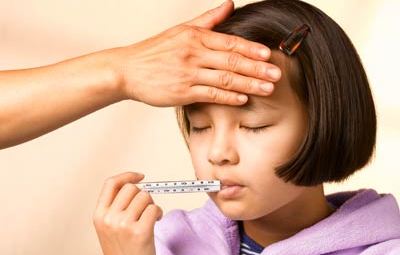
Nagpur News.
The advent of monsoon brings both cheers and tears to the diversified section of society. While it gives farmers enough reason to smile and expect flourishing harvest of crops, it brings cheers to the citizens seeking cool moments after the heavy slaps of summer. But the heavy torrents of shower equally brings wholesome worry for those residing in low-lying areas, walking through water logged streets, wading through flooded villages and thereafter suffering the serious bouts of rain borne diseases like gastro, jaundice, diarrhoea, malaria, cholera, typhoid and dengue.
Nagpur Today gets on board Dr Y.V. Bansod, H.O.D,Medicine at Government Medical College and Hospital (GMCH) in Nagpur to get some handy information on causes and prevention from these diseases.
He said the origin of these diseases is the contaminated water. He said, heavy rains change the environment causing excessive breeding of mosquitoes and flies. Virus spread gets multiplied in such an environment. Stagnated and dirty water causes excessive breeding of flies and mosquitoes. It is also seen that even cockroaches increase in monsoons. Slum areas are the worst affected due to this menace. “The water supply lines have gone too dilapidated which triggers the water contamination”, he added. The sudden burst of mosquitoes spread malaria, dengue and chikungunya. Virus generated diseases like viral fever are very common. The symptoms of viral fever are body ache, fever, dry cough, back ache and sometimes patients may have loose motions.
Viruses may also cause severe gastroenteritis wherein the patient suffers from loose motions, vomiting and dehydration. Such patients must be treated on priority basis and may require hospitalization, said Dr. Bansod.
Dr Bansod explained some of the common diseases occurred during rains and its symptoms,
Cholera is a bacterial infection. The main reason for cholera is through infected water. foods and drinks sold by street vendors and poor hygiene like grown up finger nails and flies sitting on the food. This causes infection in the food.
Symptoms are watery loose motions sometimes 10 times a day. Dehydration, cramps in hands and legs and thirsty feeling.
Dengue is transmitted by mosquito bite. Symptoms such as generalize body ache, sore throat, break bone fever, nose bleeding, blood through urine and severe joint and muscle pain.
Malaria is associated with fever and high cold. In Malaria fever comes in cycles or phases.
The patient may have body ache and severe sweating. .
Cerebral malaria is very complicated, most serious and life threatening form of malaria. Symptoms are severe head ache, unconsciousness, persistent high fever and convulsions. It may also cause kidney problems.
Typhoid is also a bacterial infection. It is contracted by the ingestion of contaminated food or water. Symptoms are high fever, body ache and abdominal pain.
Though these diseases can happen to anyone but majority of the patients from rural areas, particularly those living in slums are highly vulnerable owing to the improper sanitation and poor hygienic conditions there. Cases of gastro and cholera are most prevalent there.
Precautions to prevent monsoon related diseases:
– One should be aware that majority of these diseases is related to environment, mosquitoes, flies, water and personal hygiene.
– Clean your hands with soap before eating food.
– Drink clean and filtered water. Else boil water before drinking
– Children and old age people should drink boiled water.
– Utensils should be properly washed and clean.
– Avoid eating at road side food joints. Eating out should be avoided in monsoon.
– Eat fresh and healthy food.
– Wash all your fruits and vegetables especially leafy vegetables before cooking
– Uncooked food and salad should be avoided or salads should be washed thoroughly.
– As digestion during monsoon is slow, eat moderately and only when hungry.
– Homes should be kept clean.
– Avoid stagnation of water as it is a breeding place for mosquitoes.
| Testing times for civic body
Nagpur Today spoke to the officials in Nagpur Municipal Corporation (NMC) and Orange City Water Ltd (OCWL) responsible for supplying drinking water to the city about their preparations for ensuring clean water supply and hygienic environment. Dr Milind Ganvir, NMC, said, “We are doing awareness programmes on drinking clean water and hygiene management and distributing pamphlets in the various localities of the city. Planning of Awareness advertisements on local cable channels is also in process which may start soon.” Sachin Dravekar, Public Relation Officer, OCWL informed, “We have already cleaned ESR’s of Bezonbagh, Binaki and Dabha. By the end of the month 5 ESR and GSR will be cleaned. We have in house automated cleaning system and major water cleaning works will be initiated this month.”
|












